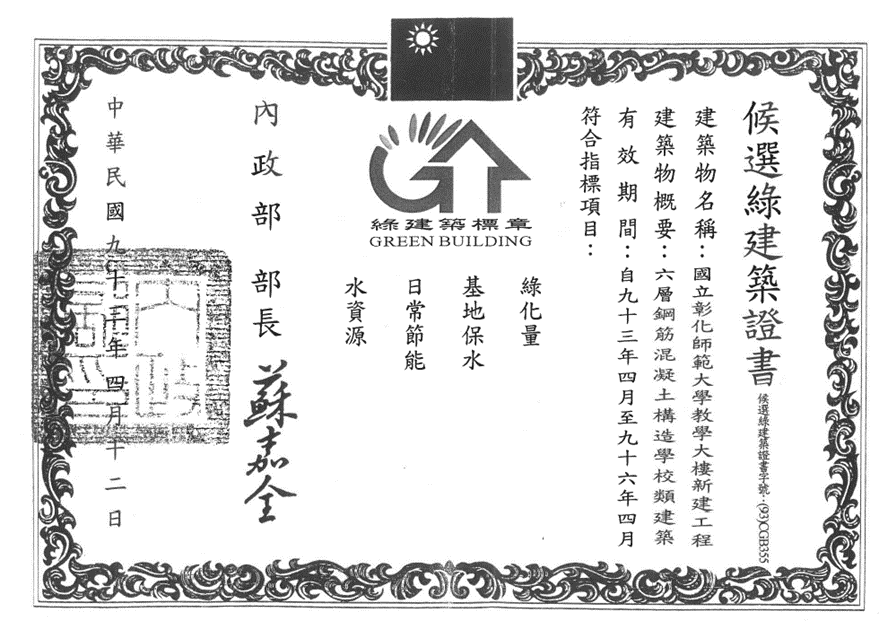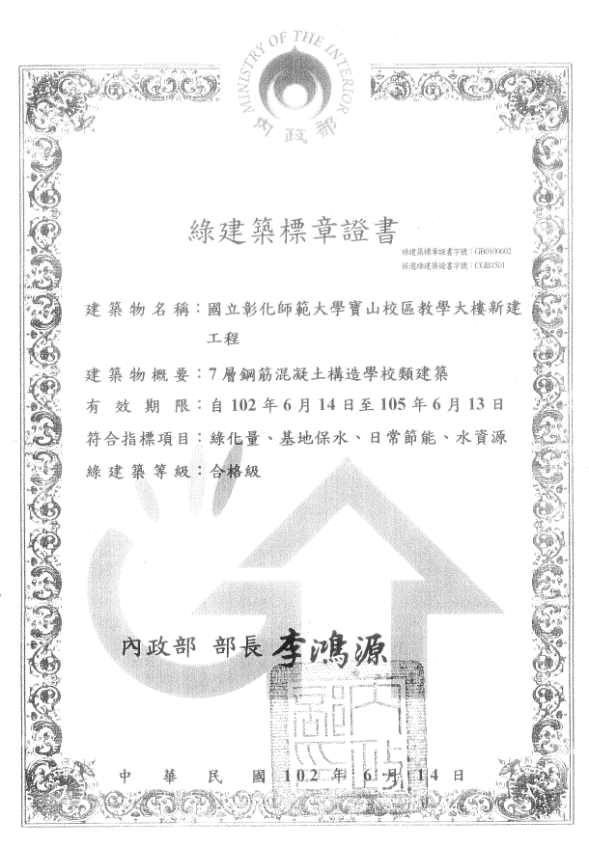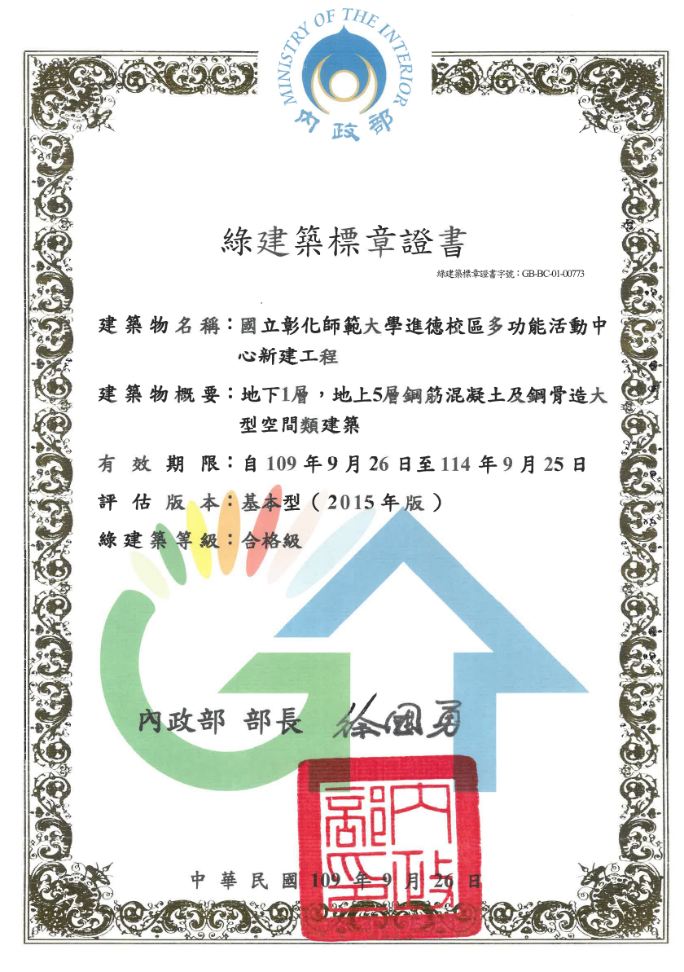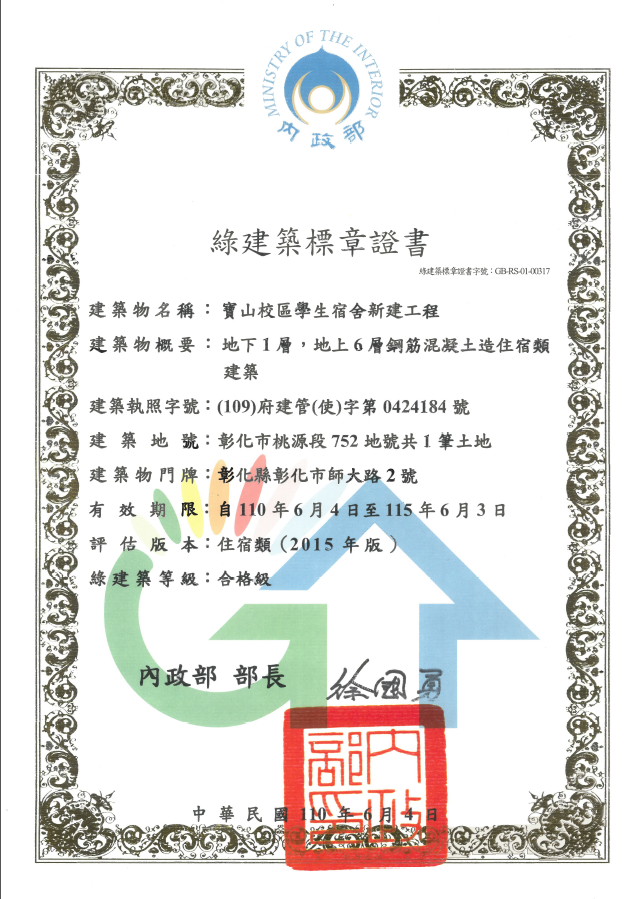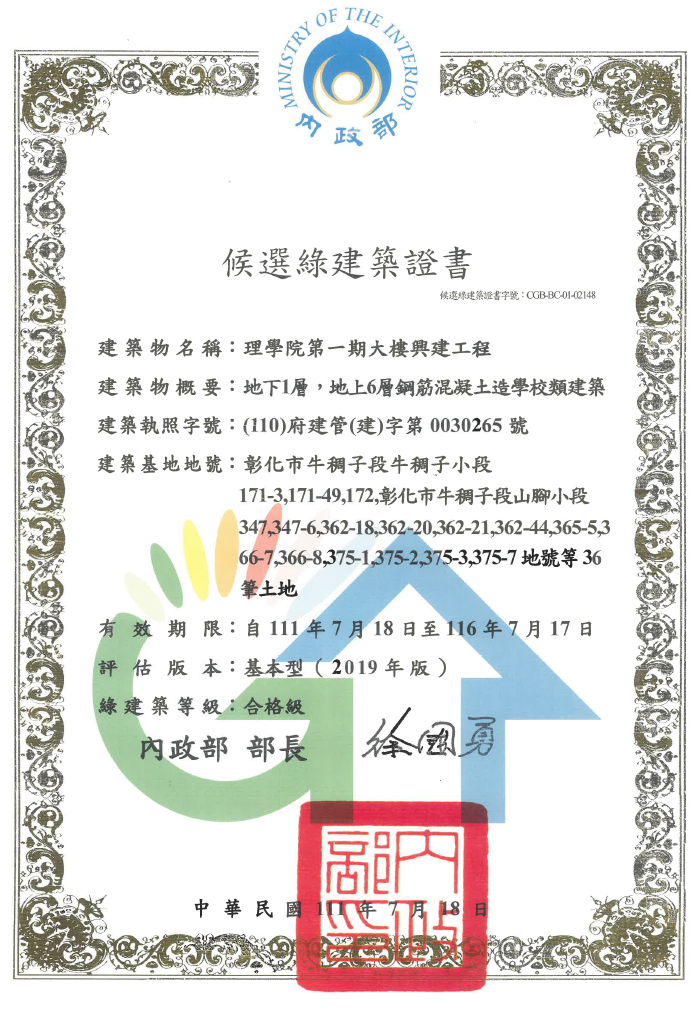SDG 6.3.4 Water-conscious building standards
1. All new campus buildings of NCUE were constructed in accordance with Taiwan’s Building Act and related standards and cost more than NT$50 million. These were granted the “Green Building Label” qualification or above in accordance with the applicable laws and regulations. To pass the requisite assessments and obtain the Green Building Label or Green Building Candidate Certificate under Taiwan’s Green Building Label system, a building must meet the two mandatory indictors of daily energy saving and water resources, and two other optional indicators (from a list of seven indicators). Since 2003, NCUE has completed the construction of four buildings and is currently under construction of one new building. All the new constructions comply with pertinent regulations and have obtained green building labels and certificates, as shown in Table 1 and Figures 1-5:
Table 1. List of green buildings at NCUE and related information
|
No. |
Information on green building |
Green Building Certification number |
|
|
1 |
Building name |
Main Teaching Building, Jinde Campus |
Candidate green building certificate number (Figure 1) (93)CGB355 |
|
Official opening |
Approximately 2006 |
||
|
2 |
Building name |
College of Engineering Building, Baoshan Campus |
Green building certificate number (Figure 2) GB0100602 |
|
Official opening |
Approximately 2012 |
||
|
3 |
Building name |
Wang Jin-pyng Activity Centre, Jinde Campus |
Green building certificate number (Figure 3) GB-BC-01-00773 |
|
Official opening |
Approximately 2019 |
||
|
4 |
Building name |
Construction of new student dormitory, Baoshan Campus |
Green building certificate number (Figure 4) GB-RS-01-00317 |
|
Official opening |
Approximately 2021 |
||
|
5 |
Building name |
College of Science Building (phase 1) |
Candidate green building certificate number (Figure 5) CGB-BC-01-02148 |
|
Official opening |
Scheduled for completion in 2024 |
||
2. Among the nine major criteria for the Green Building Label listed below, the indicators for water resources have been thoroughly implemented for all our new buildings. To save water resources in buildings on the two campuses, replacing appliances with water-saving ones was adopted.
(1)Utilization of water-saving appliances: These include new types of taps and water-saving faucets, water-saving and dual-stage flushing toilet bowls, water-saving shower heads, and sensing systems for automatic flushing.
(2)Installation of rainwater-storage and water-supply system: Rainwater is intercepted and stored by making use of the natural terrain or artificial methods, before being subjected to simple purification treatments and reused as miscellaneous domestic water. The reutilization of rainwater serves as an alternative supplementary water source for domestic water, a water storage source for firefighting, and a way to help reduce peak loads during urban floods.
(3)All the above items have been implemented in NCUE's new buildings.
|
|
|
Figure 1. The green building certificate candidate for the teaching building of the Jinde campus of NCUE |
|
|
|
Figure 2. The green building certificate of the School of Engineering of Baoshan Campus of NCUE |
|
|
|
Figure 3. The green building certificate of Wang Jin-Pyng Activity Center of NCUE |
|
|
|
Figure 4. The green building certificate of the new construction of the student dormitory on the Baoshan campus of NCUE. |
|
|
|
Figure 5. Candidate green building certificate for College of Science Building (phase 1) |

